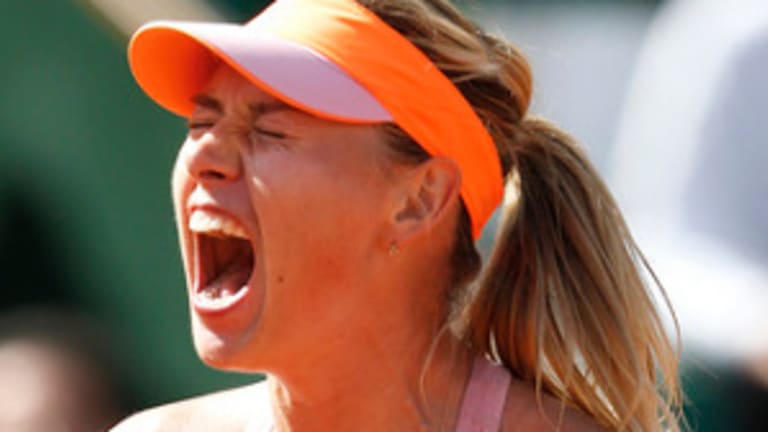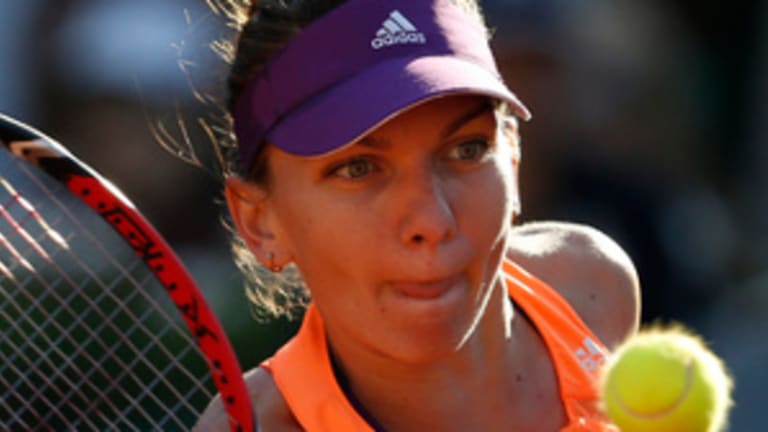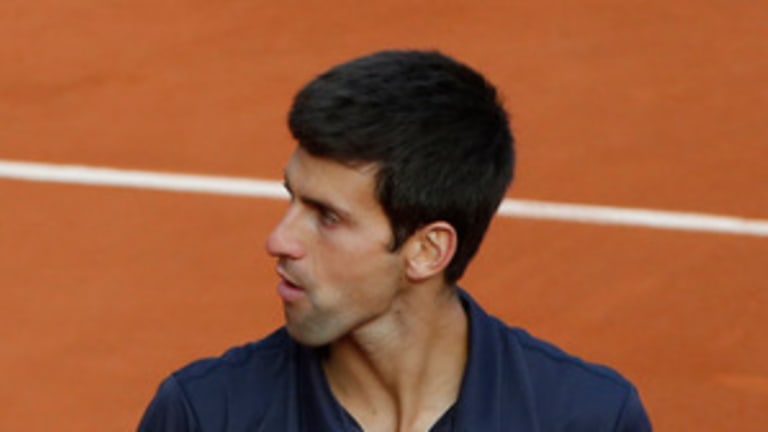The women continued their fine run in Paris—Maria Sharapova and Eugenie Bouchard by putting on a competitive, if less than perfectly played, semifinal; and Simona Halep by showing us again how easy the sport should be, but so rarely is.
First Ball In, 6/5: Semi-Tough
By Jun 05, 2014Social
Maria Sharapova, Venus Williams among stars who honor science achievement at Breakthrough Prize Ceremony
By Apr 19, 2024Served Podcast
Kim Clijsters, Andy Roddick react to Caroline Wozniacki’s opinion on Simona Halep’s Miami wild card
By Mar 25, 2024Served Podcast
Tiger Woods inspired Maria Sharapova’s brand strategy, reveals agent Max Eisenbud on Andy Roddick’s "Served" podcast
By Feb 27, 2024pickleball
PHOTOS: Stefanie Graf, Andre Agassi top Maria Sharapova, John McEnroe at Pickleball Slam 2
By Feb 06, 2024Social
Christmas in ... January? Sharapova shares hilarious holiday blooper reel to celebrate Australian Open champ Sinner
By Jan 28, 2024This Week in Tennis
The world in 2005—the last year the Australian Open didn’t feature a ‘Big 3' finalist
By Jan 27, 2024Pop Culture
Hubert Hurkacz, Ons Jabeur, Holger Rune and Maria Sharapova hit the track at Formula One Abu Dhabi Grand Prix
By Nov 27, 2023Pop Culture
Maria Sharapova teases guest appearance on McEnroe’s Places
By Aug 05, 2023pickleball
Agassi, Graf, McEnroe and Sharapova to take part in second Pickleball Slam event
By Jul 19, 2023First Ball In, 6/5: Semi-Tough
A review of today's women's semis, and a preview of the men's. Pl
Published Jun 05, 2014
Advertising

First Ball In, 6/5: Semi-Tough
© AP
Advertising

First Ball In, 6/5: Semi-Tough
© AP
Advertising
Advertising

First Ball In, 6/5: Semi-Tough
© AP